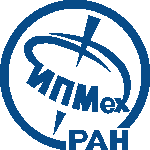
|
ИСТИНА |
Войти в систему Регистрация |
ИПМех РАН |
||
In situ anti-tumor immunization using the tumor microenvironment reprograming with a TLR4-agonist induces strong CD4 and CD8 T cells responses, long-living T cell memory, and protection against 4T1 metastatic breast cancer in mice.доклад на конференции
- Авторы: Ushakova E.I., Savchenko M.L., Lebedeva E.S., Pichugin A.V., Ataullakhanov R.I.
- Международная Конференция (Конгресс) : 6th European Congress of Immunology
- Даты проведения конференции: 1-4 сентября 2021
- Дата доклада: 4 сентября 2021
- Тип доклада: Стендовый
- Докладчик: не указан
- Место проведения: Белград, Serbia
-
Аннотация доклада:
Study objectives. To estimate tumor immunotherapy efficacy with the combination of a tumor surgical resection and the microenvironmental macrophage/dendritic cells reprogramming into their anti-tumor state using TLR4-activating signaling. Methods. BALB/c mice were subcutaneously inoculated with 15,000 4T1 cancerous cells. Surgical resection of the primary tumor was performed on day 11. Pharmaceutical TLR4-agonist Immunomax (14 µg) was injected every 4 days. Tumor-reactive IFNγ-secretory T cells were counted using ELISPOT. Sorted CD8 effector T cell cytotoxicity was measured in co-culture with 4T1 cells. Results: 20-30% of mice with the deadly metastatic disease recovered upon a combination of the primary 4T1 tumor resection and immunotherapy with TLR4-agonist. Following the treatment, the complete responder mice developed CD4 T cells and CD8 T cells responding to 4T1 tumor antigens by secretion of IFNγ and capable of killing 4T1 tumor cells. The repeated inoculation of the 4T1 tumor cells into complete responders did not induce any tumor growth in 50%. Significant numbers of CD4 T cells that respond to 4T1 tumor antigens, as well as CD8 T cells that kill 4T1 tumor cells were found in the tertiary tumor and draining lymph node. T cell-mediated memory in complete responder mice persisted for 260 days post-treatment (day of observation). Conclusion: Macrophage/dendritic cell reprogramming with the TLR4-agonist for the post-resectional immunotherapy of 4T1 cancer metastatic disease induces tumor-specific T cell responses and T cell-mediated long-living immune memory.
- Добавил в систему: Ушакова Екатерина Игоревна